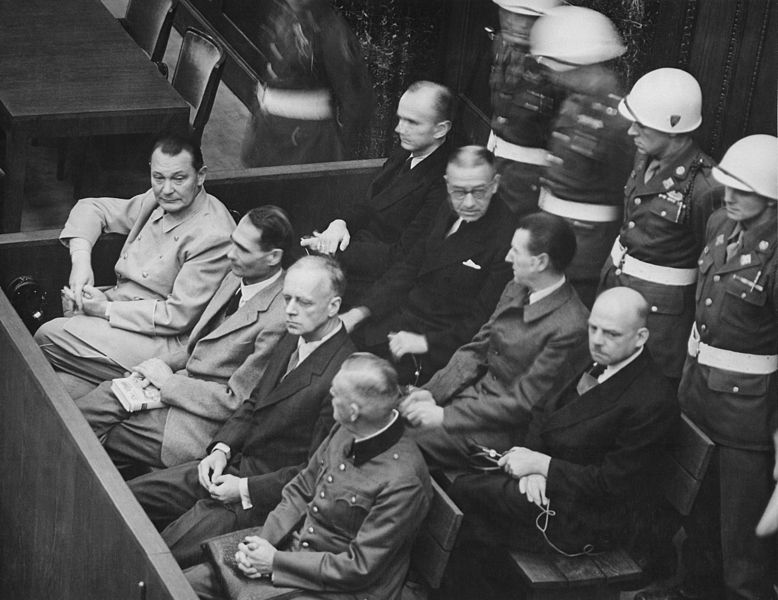*Image Credit: Wikimedia Commons Six months after World War II in Europe came to an end, officials from all over the planet gathered in Nuremberg, Germany to put prominent Nazi administrators on trial for war crimes on November 20, 1945. With 24 of the top leaders standing trial for nearly a year, the quest for justice in the wake of the horrifying conflict started. The idea for a proceeding to create penalties for those who led the Nazi effort first surfaced in earnest near the end of 1944, as the Allied armies were just beginning to make progress against the weakened German war machine. Among the leaders of the three military powers — the United States, Great Britain and the Soviet Union — there was a unanimous belief that at least some should face execution for the damage they had done. US President Franklin Roosevelt and Soviet Chairman Joseph Stalin, with varying levels of seriousness, both went so far as to advocate firing squads for large numbers of the German military leadership. Upon Roosevelt’s death and the ascension of Vice President Harry Truman to the highest office in America, the focus shifted to something along the lines of a court martial. With the London Charter agreed to on August 8, 1945, stipulations written into the Instrument of Surrender of Germany were used to establish a judicial system for any atrocities which occurred after September 1, 1939 — leaving the deaths of thousands of Jews in the lead up to official combat outside the panel’s jurisdiction. Gathering in Nuremberg on November 20, 1945, officials took their seats in the Palace of Justice well aware of the symbolism: the city had been considered the home of National Socialism. With the sound of a gavel, the International Military Tribunal began weeding through the two dozen cases on the docket. Almost every person captured near the top of the Nazi Party’s separate commands — Gestapo, Schutzstaffel (SS), Hitler’s Cabinet, etc. — would face the court to answer for his role. Over the course of eleven months, prosecutors laid out details about each man’s part in helping Hitler to wage one of the most destructive and deplorable military campaigns in history. Of the 24 who stood trial, only three were acquitted and one moved to a lesser court. Fully half of those subpoenaed to appear were sentenced to the death penalty, while the seven who remained each faced minimum 10-year jail terms — most were 15 years to life. On October 16, 1946, ten of the defendants were hanged by representatives of the US Army. Only Herman Goering, who committed suicide the night before, and Martin Bormann, who had taken his own life without anyone knowing as the Allies marched on Berlin, were not present. Criticized by some after the convictions and penalties were rendered as “victors’ justice,” the tribunal did much to lay the foundation for the International Criminal Court that exists at The Hague, Netherlands today. Also On This Day: 1820 – The whaling ship Essex is attacked by a sperm whale off the coast of Nantucket, Massachusetts, later used as part of the inspiration for Herman Melville’s novel Moby-Dick 1985 – Microsoft Windows 1.0 is released 1962 – The Soviet Union agrees to remove missiles from Cuba and the United States Navy ends its quarantine of the island, bring the Cuban Missile Crisis to a close 1994 – The Angolan Civil War tempoerarily comes to an end with the Lusaka Protocol in Zambia 2008 – The Dow Jones Industrial Average closes at 7552, its lowest point since 1997
November 20 1945 – The Palace of Justice in Nuremberg Hosts War Crimes Trials for 24 Nazis
*Image Credit: Wikimedia Commons Six months after World War II in Europe came to an end, officials from all over the planet gathered in Nuremberg, Germany to put prominent Nazi…
295
